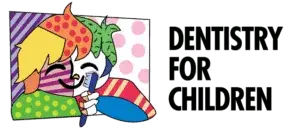At what age should my child finish losing baby teeth
The time period that starts when your child loses their first baby tooth is an exciting one. What could be better than the tooth fairy making 20 visits to celebrate milestones on the road to becoming a big kid?
As it turns out, the tooth fairy has become more generous in the last few decades. Delta Dental’s original tooth fairy poll has tracked the money traded for pearly whites since 1998, when a tooth went for an average of $1.30. Since then, the price has outpaced inflation and kept up with the S&P 500. The 2019 rate of $3.70 per tooth is actually down from the $4.50/tooth rate seen in 2017.
While your family’s prices may vary, most parents can expect to start playing the role of tooth fairy when their child is 5 or 6 — perhaps 4 for the ambitious or 7 for late bloomers. But when should you expect to give your last performance? Use this blog as a guide to baby teeth and when your child may put their final tooth under their pillow.
If your child just started losing baby teeth or is well on their way to a big-kid mouth, come see the team at Dentistry for Children in Henderson and Las Vegas, Nevada. Maryam Sina, DDS, and the rest of our staff are dedicated to providing quality care that meets the individualized needs of every child. Dr. Sina has over 25 years of experience working with children and is board-certified in pediatric dentistry.
On baby teeth
Humans, like most other mammals, are diphyodonts, meaning that we grow two sets of teeth during childhood development. Babies are born with their baby teeth already in their jaw, which begin to erupt around 6 months. Girls generally grow teeth before boys, and the teeth tend to erupt in corresponding pairs. Most children have a full set by the time they’re 3.
The purpose of baby teeth
The main role of baby teeth is to hold the space that adult teeth eventually fill. However, baby teeth also have other roles, including:
- Giving the face its normal appearance
- Helping the development of defined speech
- Creating a smile
- Attaining good nutrition
- Helping oral muscle development
Healthy baby teeth also prevent adult tooth crowding.
Losing baby teeth
As mentioned above, your child should lose their first baby tooth around age 5 or 6. The first adult teeth, the central incisors (think two front teeth) come in a year or two later. The rest of the teeth follow suit — a baby tooth lost leaves room for an adult tooth to emerge. Most children lose their last baby tooth around the age of 12. All non-wisdom teeth are typically in place around your child’s 13th birthday. Wisdom teeth may wait until age 21 to make their presence known.
On tooth extraction
Not every tooth gets loose and easily comes out. When there’s a problem with a tooth or it needs to go, tooth extraction is often the solution. Common reasons for tooth extraction include:
- Excessive tooth decay
- Large cavities
- Preparation for orthodontics
- Trauma or severe damage
- Loose teeth
- Root damage
- Failed root canal procedure
- Wisdom teeth removal
Dr. Sina works with you and your child to make this process comfortable and easy.
Dr. Sina can’t take over your tooth fairy duties, but she and the team at Dentistry for Children can handle the rest of your child’s dentistry needs. Contact us today at one of our two convenient office locations.

